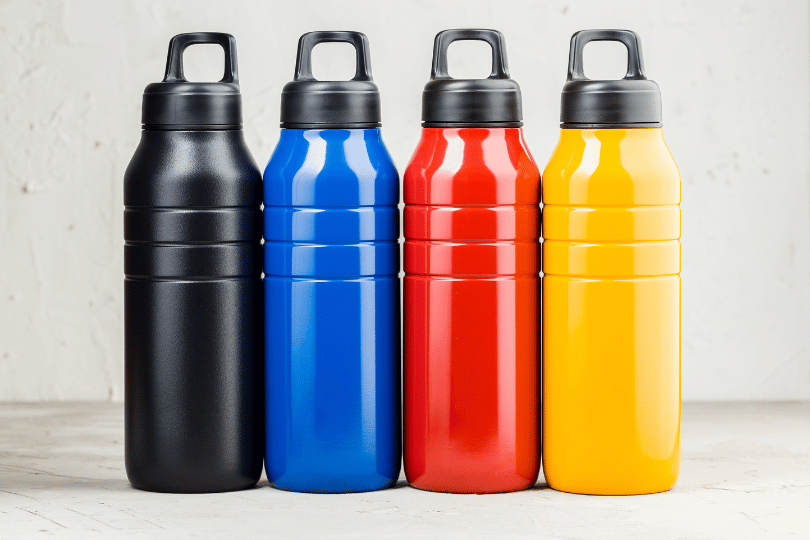
Hydration is key to good health, and the material of your water bottle can greatly affect the safety and quality of your drinking water. With a plethora of materials available in the market, it’s important to know which ones are safe and beneficial for your health. Let’s discover the world of water bottle materials and their health impacts.
1. Stainless Steel: The Durable Choice

Stainless steel water bottles are celebrated for their durability and safety. They’re non-reactive, which means they won’t release harmful chemicals into your water, even when exposed to heat or acidic liquids. If you’re looking for a material that won’t compromise the quality of your water, stainless steel is a great choice. Just make sure to opt for bottles labeled as food-grade stainless steel for the highest standard.
2. Glass: The Pure Option

Glass is another safe and inert material that won’t alter the taste or chemical composition of your water. It’s non-permeable and resistant to bacterial growth. If you’re keen on avoiding potential chemical leaching, glass is an excellent choice. However, keep in mind that glass bottles can be more fragile and heavier than other materials.
3. BPA-Free Plastic: The Modern Pick
Many contemporary plastic water bottles are labeled as BPA-free, addressing concerns associated with Bisphenol A, a chemical that may disrupt hormone levels. BPA-free plastics are considered safe for short-term use. While generally safe, some BPA-free plastics may still contain other potentially harmful chemicals. It’s crucial to check the specific type of plastic used and choose bottles labeled as free from harmful additives.
4. Copper: The Traditional Alternative
Copper bottles have become popular for their claimed health benefits, including antimicrobial properties. However, prolonged exposure to high levels of copper can lead to toxicity. Copper bottles can offer benefits when used for short durations, but be mindful of potential copper buildup if used excessively.
5. Aluminum: The Lightweight Solution
Aluminum bottles are lightweight and durable. Most come with a lining to prevent direct contact between the metal and the water, addressing concerns about potential leaching. While the lining minimizes the risk of aluminum leaching, it’s important to choose bottles from reputable brands to ensure the coating is of high quality.
The Verdict:
The material of your water bottle plays a crucial role in maintaining the safety and quality of your drinking water. Stainless steel and glass are often top choices for their inert nature, while BPA-free plastics can be safe for short-term use. Copper and aluminum bottles offer unique benefits but require careful consideration and proper usage.
Your choice of water bottle material should be guided by your individual preferences, lifestyle, and health considerations. Regular cleaning and timely replacement of your bottle will further enhance the safety and hygiene of your hydration routine. Choose wisely and let your water bottle be a trusted partner in your journey towards optimal health.

















Leave a Reply